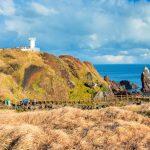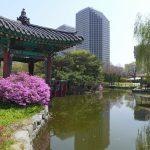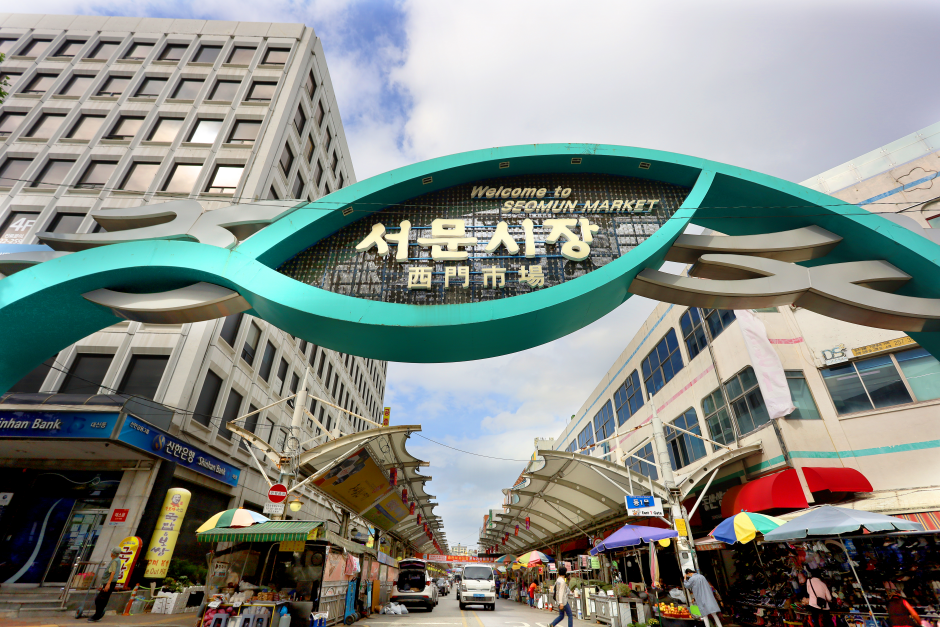Located in the southwestern part of South Korea, Gwangju is a vibrant and culturally rich city known for its historical significance and artistic heritage. As the sixth-largest city in the country, Gwangju offers a unique blend of traditional charm and modern amenities. With its thriving arts scene, delicious cuisine, and fascinating historical sites, Gwangju provides a captivating experience for travelers seeking a deeper understanding of Korean culture.
History & Culture: Gwangju has a significant place in South Korea’s modern history, particularly due to the Gwangju Uprising of 1980. This event marked a turning point in the country’s democratic movement. The city’s history is preserved and commemorated at the May 18th National Cemetery and the 5.18 Memorial Park. Gwangju is also renowned for its vibrant cultural scene, with numerous museums, art galleries, and theaters showcasing the city’s artistic heritage.
Weather and Best Time to Visit: Gwangju experiences a temperate climate with distinct seasons. Spring (April to June) and autumn (September to November) are the best times to visit, offering mild temperatures and beautiful natural landscapes. Summers (July to August) can be hot and humid, while winters (December to February) are cold with occasional snowfall. Visitors can enjoy various festivals throughout the year, such as the Gwangju Kimchi Festival and the Gwangju Biennale.
How to Reach: Gwangju is easily accessible from major cities in South Korea. The city has its own international airport, Gwangju Airport, with flights connecting to several domestic and international destinations. Alternatively, travelers can fly into Incheon International Airport in Seoul and take a domestic flight or a high-speed train to Gwangju. The KTX train provides fast and convenient transportation from Seoul to Gwangju, with a journey time of around 2.5 hours.
Local Transportation Available: Gwangju has an efficient and well-connected local transportation system, making it convenient for travelers to explore the city and its surroundings. The Gwangju Metro, with two lines, is the primary mode of public transportation, offering easy access to major attractions and neighborhoods. Buses are also widely available, providing comprehensive coverage throughout the city. Taxis are a convenient option for traveling short distances or reaching specific destinations.
Must-Visit Tourist Attractions:
- Gwangju National Museum: Explore the rich history and cultural heritage of the region through a vast collection of artifacts and exhibitions.
- Mudeungsan Mountain: Embark on a hiking adventure in this beautiful mountainous area, offering scenic trails, stunning viewpoints, and historic temples.
- Asia Culture Center: Immerse yourself in art, music, theater, and various cultural performances at this contemporary cultural complex.
- Gwangju Folk Museum: Learn about traditional Korean folk culture through exhibits showcasing traditional crafts, costumes, and artifacts.
- Chosun University Museum of Art: Discover contemporary artworks and exhibitions by Korean and international artists at this renowned museum.
Must-Do Activities:
- Visit Gwangju Biennale: Experience one of Asia’s most significant contemporary art exhibitions, featuring works by international artists.
- Explore Yangdong Market: Stroll through this bustling traditional market, known for its local produce, street food, and handicrafts.
- Attend a performance at the Gwangju World Art Festival: Enjoy music, dance, and theater performances by talented artists from around the world.
- Take a leisurely walk along the Gwangju Stream: Enjoy the peaceful atmosphere and scenic views while walking along the beautiful streamside.
Fun & Entertainment Parks:
- Sajik Park: A spacious park with beautiful gardens, walking trails, and recreational areas, ideal for picnics and outdoor activities.
- Gwangju Family Land: A family-friendly amusement park with a variety of rides, attractions, and entertainment options.
Popular Food and Drinks:
- Bibimbap: Try the famous Gwangju-style bibimbap, a delicious dish of mixed rice topped with vegetables, meat, and spicy sauce.
- Gwangju Makgeolli: Sample the local rice wine, Makgeolli, known for its slightly sweet and tangy flavor.
- Gwangju-style Kimchi: Taste the city’s unique variety of kimchi, a staple Korean side dish made of fermented vegetables.
Restaurants and Bars:
- Yangnim-dong Alley: Explore the vibrant food alley of Yangnim-dong, filled with numerous restaurants offering diverse cuisines, including Korean, Japanese, and Western.
- Daein Night Market: Experience the lively atmosphere of this night market, featuring food stalls, street performances, and live music.
Nightlife and Nightclubs: Gwangju offers a vibrant nightlife scene with numerous bars, clubs, and entertainment venues. The downtown area, particularly Geumnamro 4-ga and Sangmu, is known for its lively nightlife.
Shopping Centers and Markets:
- Geumnam-ro Shopping Street: Discover a wide range of shops, boutiques, and department stores offering fashion, accessories, and cosmetics.
- Gwangju Traditional Market: Explore this bustling market known for its fresh produce, seafood, and local specialties.

Museums and Educational Institutions:
- Gwangju National Museum: Learn about the region’s history and cultural heritage through its extensive collection of artifacts and exhibitions.
- Chosun University Museum of Art: Visit this renowned university museum featuring contemporary artworks and exhibitions.
Safety for Tourists and Do’s & Don’ts: Gwangju is generally a safe city for tourists, but it’s always advisable to take basic safety precautions, such as keeping an eye on your belongings and being aware of your surroundings. It’s recommended to have travel insurance and to follow local laws and regulations.
Environment and Sustainable Tourism: Gwangju is committed to promoting sustainable tourism and preserving its natural environment. Visitors are encouraged to minimize plastic waste, use public transportation or eco-friendly modes of transport, and respect natural areas and cultural heritage sites.
General Information:
- Language: The official language is Korean, but English is commonly spoken in tourist areas.
- Religion: Gwangju has a diverse religious landscape, including Buddhism, Christianity, and other faiths.
- Population: As of September 2021, Gwangju’s population is approximately 1.47 million.
- Holidays: Major holidays in South Korea, such as Lunar New Year and Chuseok (harvest festival), are celebrated in Gwangju.
- Water: Tap water in Gwangju is generally safe to drink.
- Electricity: The standard voltage is 220V, and the outlets typically accommodate two round pins.
- Mobile and Internet: Gwangju has excellent mobile coverage and high-speed internet connectivity.
- Health Services: Gwangju has modern medical facilities and hospitals that provide quality healthcare services.
- Postal Service: The Korea Post offers reliable postal services in Gwangju.
- Suitable Clothing: The appropriate clothing depends on the season. Light and breathable clothing is suitable for summers, while warmer clothing is recommended for winter.
- Banks: Gwangju has a wide network of banks and ATMs that accept international cards.
Conclusion || Gwangju
In conclusion, Gwangju is a city that captivates visitors with its rich cultural heritage, artistic vibrancy, and warm hospitality. With its historical landmarks, vibrant festivals, delicious cuisine, and thriving arts scene, Gwangju offers a unique travel experience for those seeking to immerse themselves in Korean culture. Whether you’re exploring the city’s museums, indulging in local delicacies, or experiencing the lively nightlife, Gwangju is sure to leave a lasting impression.
Book Your Flights : Here 30% OFF on Booking
Book Your Hotels : Here 20% OFF on Booking




























0 Comment